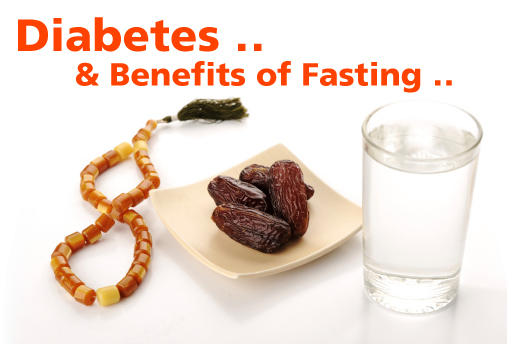Benefits of Fasting for Diabetic Patient in General
Author: Dr. Abeer Mohammed Al-GhawiAbout Author: Acting Director of Health Promotion
Category: Staying Healthy, Exercise & Diet
Fasting has several positive impact on health and nutritional statutes of patient. First, fasting helps to lose weight and practice healthy dietary habits. Second, it helps to regulate and control blood sugar and cholesterol. Third, it improves the functions of body system-organs like digestive and nervous system. Moreover, fasting works as detox for the body and help to get rid of toxins through kidney. During fasting individuals feel calm and relaxed because fasting improves mental health. Furthermore, fasting enhance immune system as result of regulating blood sugar.
Unfortunately, in Ramadhan many unhealthy dietary habits are practiced, as families head to prepare various and multiple food and receipes during fatour and sahour. Besides, some traditional Ramadhan dishes are high in calories, fat and sugar and need to be consumed in moderation or prepared in healthy way.
Healthy tips for fasting diabetic patients:
- Eat two to three meals and one to two snacks at regular intervals help to regulate blood sugar.
- Carbohydrates must be distributed evenly at main meals and snacks between fatour and sahour as it affect directly on blood sugar. It is advised to avoid simple sugar (honey, jam, sweets and soft drinks).
- Monitor your blood sugar especially in the first days to detect any hyperglycemia and adjust your plan accordingly.
- Best time to measure blood sugar is after two hours from sahour and one hour before fatour.
- acceptable blood sugar level two hours after meals is less than 160 mg/dl. More than 200 mg/dl considered high blood sugar. And if positive urine ketone appears you need to see your doctor. Patient should break fasting immediately if they suspect hypoglycemia or their blood sugar was less 70 g/dl.
- Drinking water is important from fatour to sahour. Drink tea, coffee in moderation and avoid soft drinks.
- Consume fiber rich food is mandatory like fruits, vegetables, legumes and whole grains.
- Diabetic patient should eat healthy balanced meal rich in vegetable, fruits, non-fatty protein, whole grains and reduced salt, fat and sugar.
Hypoglycemia:
Blood sugar less than 70 mg/dl is considered hypoglycemia even when there is no sing and symptoms. Most of the times hypoglycemia is a results of high dose of insulin or diabetes medication or improper food portion or performing extra unplanned physical activity.
To avoid hypoglycemia:
- Take medication on time and right dose.
- Carry candies to rescue yourself in case of sudden hypoglycemia.
- Monitor your blood sugar.
Fasting diabetic patient and physical activity in Ramadhan:
Physical activity is very helpful for diabetic patients but it is advised to avoid performing physical activity during fasting time or in high temperature environment. It is recommended to perform physical activity two after fatour.





